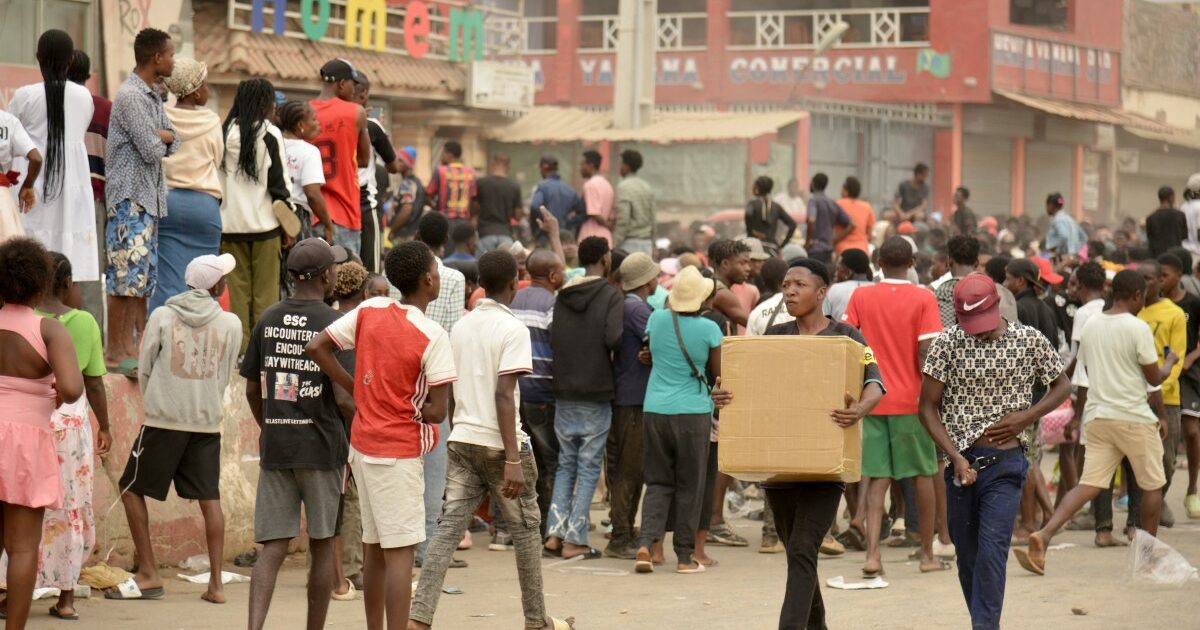In the heart of Luanda, Angola’s capital, streets once bustling with energy have been reduced to scenes of ruin, anger, and anguish. Burnt tyres litter corners, shattered glass reflects the trauma of a people pushed to their limits, and armed soldiers patrol neighborhoods still echoing the chants of protest: “Temos fome.” “We’re hungry.”
The recent wave of unrest in Angola marks one of the worst periods of social upheaval the country has witnessed in decades. For human rights activist Julio Candero, two moments during the protests remain hauntingly unforgettable: the image of a woman being shot in the back by a policeman, and the desperate, unified cry of a population pushed to the brink. “Luanda is slowly regaining its usual rhythm, but obviously, it is a different city now,” Candero remarked. As the director of Mosaiko, a prominent Luanda-based human rights organization, he has monitored political and civil unrest in Angola for years. But this time, he says, the pain is deeper and more widespread.
What began as a three-day strike organized by minibus taxi associations quickly escalated into nationwide protests after the Angolan government announced a major cut to fuel subsidies, increasing diesel prices by one-third starting July 1. The government framed the decision as an unavoidable step toward fiscal reform and budgetary containment, but for millions of struggling Angolans, already battered by high inflation and widespread unemployment, it felt like a death sentence.
The protests, which first broke out peacefully on July 12, soon turned violent. By the following week, chaos had taken over cities across the country. Shops were looted, vehicles torched, and angry demonstrators clashed with riot police in what many are now calling the largest public uprising since the end of the civil war in 2002.
According to official figures, at least 22 people lost their lives during the unrest, 197 others sustained injuries, and more than 1,200 individuals were arrested across the country. Human rights organizations suggest that the true figures could be higher, given the reports of excessive use of force by security agencies and limited access to information from remote areas.
Fuel subsidies have long been a sensitive issue in Angola. While the government argues that subsidies distort the economy and benefit the wealthy, ordinary citizens say that the sudden removal without adequate cushioning measures is a betrayal of trust. For many Angolans, fuel prices are not just about transportation; they directly affect the cost of food, medicine, and other basic necessities. The price hikes have already begun to ripple through the economy, making daily life increasingly unaffordable.
Angola, Africa’s third-largest oil producer, has faced a paradoxical economic reality: immense national wealth from oil exports, but persistent poverty for the majority of its population. Despite a post-Civil War boom in oil revenue, systemic corruption, mismanagement, and inequality have kept millions in poverty. According to the World Bank, over 40% of Angolans live below the poverty line.
In recent years, the government under President João Lourenço has taken steps to reform the economy, crack down on corruption, and attract foreign investment. But critics say that these efforts have largely overlooked the poor, who continue to bear the brunt of austerity measures. The anger seen on the streets is not just about fuel, it is about years of frustration over economic hardship, unemployment, failing public services, and political exclusion.
International observers have urged restraint and dialogue. The African Union and United Nations have called on the Angolan government to investigate the violence and ensure accountability for any human rights violations. Humanitarian groups warn that unless the root causes of the unrest poverty, hunger, and inequality are addressed, the country could be on a dangerous path toward prolonged instability.
In the aftermath of the protests, the government has made few public statements beyond justifying the subsidy cuts as a necessary evil. Meanwhile, Angolans are left with scars, both physical and emotional, and growing uncertainty about their future. Streets are quieter now, but the silence speaks volumes. There’s a growing consensus among civil society leaders and political analysts: this is not the end it’s a warning of more turbulence to come if urgent, people-centered reforms are not enacted.
As Julio Candero put it, “This is a pivotal moment for Angola. The people have spoken through tears, through chants, through blood. Now it’s up to the leaders to listen.”













Leave a comment